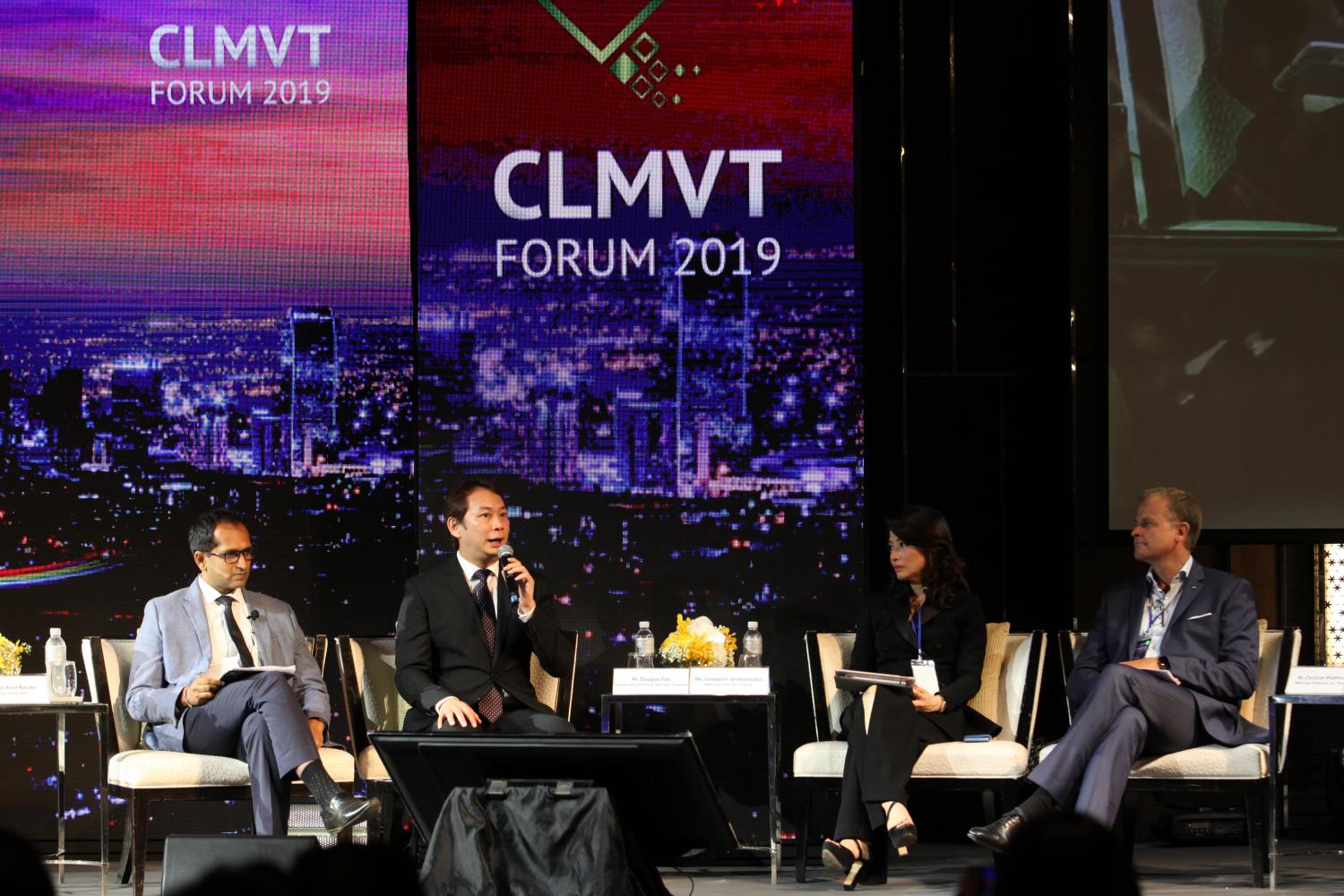
SET-listed WHA Corporation Plc is planning to develop two new projects, a science park and a high-tech industrial estate, in a bid to link trade and investment from Thailand with counterparts in other Southeast Asian nations.
Jareeporn Jarukornsakul, chairman and chief executive, said WHA will reveal investment details in the next few months.
"We are confident that two new plans will attract foreign and local investors," she said. "The projects are part of WHA's 2018-23 investment budget totalling 40 billion baht."
Ms Jareeporn said WHA's business plans aim to connect Thailand with other Southeast Asia countries, the first group consisting of neighbouring Cambodia, Laos, Malaysia and Vietnam.
"WHA expects new trade and investment linkages from those nations," she said.
Ms Jareeporn joined Monday's panel discussion on "Trade and Investment Linkage: CLMVT and Beyond" at the CLMVT 2019 Forum, stating that businesses and companies are calling for the government to support development of the e-commerce sector to connect all of Southeast Asia.
"Alibaba also suggested that the five nations [Cambodia, Laos, Myanmar, Vietnam and Thailand] should establish their CLMVT e-commerce platform in order to promote their farm products and support local small and medium-sized enterprises to have more distribution channels," Ms Jareeporn said.
"The five countries should cooperate and develop their investment plans together for further competition and share their resources such as logistics and workforces."
Christian Wiedmann, president of BMW Group Thailand, said the five nations are important in terms of GDP in a region with a total population of over 600 million people.
"Those countries are the investment destinations for the automotive sector, so the region offers more potential for investment and business," Mr Wiedmann said.
CLMVT will boost investment flows in Southeast Asia, he said, but the challenges are an eco-friendlier landscape and digital and technology disruption.
Companies must focus on technology, innovation and digital change as they disrupt conventional business, Mr Wiedmann said.
"The global automotive industry is shifting its focus towards electric vehicles, while the group in Germany has already prepared research and development activities to handle all future changes," he said.
Chetan Arun Narake, chief executive of India's Chandragan Group, said CLMVT governments should team up to attract new investment to the region.
More importantly, each country should ease and revoke business regulations that are obstacles to investment.
"If the five governments set a new single regulation, it would facilitate doing business," Mr Narake said.
Douglas Foo, president of the Singapore Manufacturing Federation, said the five nations should build up their relationship and cooperation on many levels to create more investment flow in the region.
"They should create and design new training programmes to develop their workforces because they are the key drivers to mobilise their economies," Mr Foo said. "In addition, CLMVT should prepare for new waves of digital disruption of their business sectors, as they cannot avoid this trend."